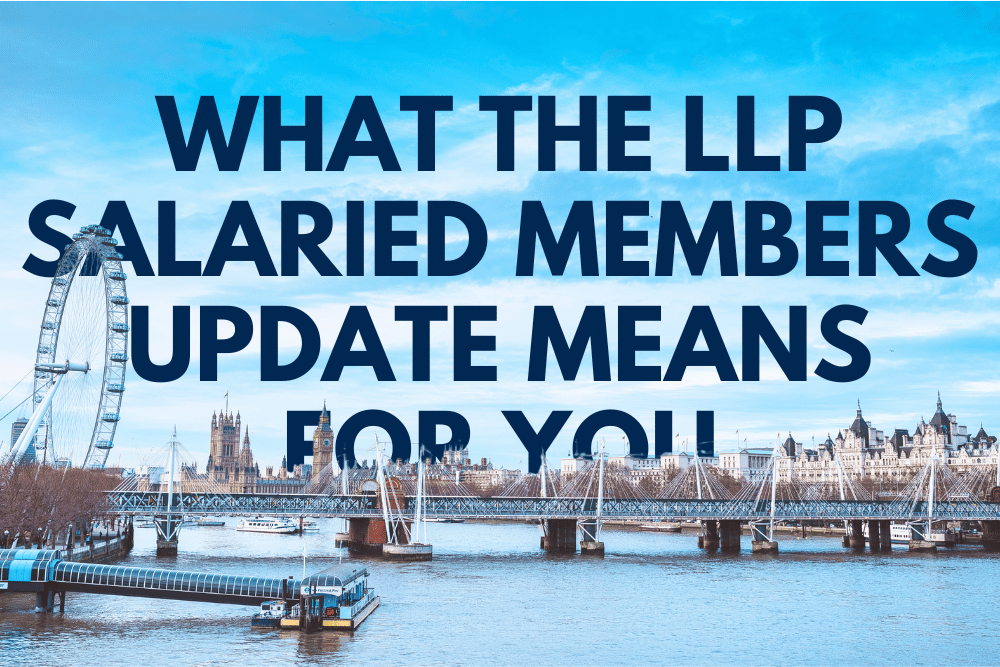
HMRC’s LLP Salaried Members Update
What does it mean for you?
In this – our latest blog article – we delve into the LLP salaried members update, letting you in on what you need to know and, importantly, what you need to do next. Read on…
What are the current rules?
Prior to the introduction of the salaried member rules, reports ICAEW – the global professional body for chartered accountants – ‘it was widely observed that certain individuals were being appointed as members of LLPs’.
Such members, states the ICAEW article, would then therefore automatically be taxed on a self-employed basis, regardless of the fact that ‘they looked and acted more like employees.’
Cue the introduction of the salaried member rules, which aimed to ensure these individuals would, for tax purposes, be treated as though they were, in fact, employed.
These rules, containing three conditions (A, B, and C) were devised to ascertain when members should be regarded as appearing more like an employee than a partner. The rules, which applied where all three conditions were met, included:
- A minimum of 80% of the amount payable by the LLP in respect of the individual’s service will be ‘disguised salary’ – i.e. fixed rather than set by reference to the profits and losses of the LLP.
- The member does not have significant influence over the affairs of the LLP.
- The member’s capital, or contribution to the LLP, is less than 25% of the amount of ‘disguised salary’ that he or she is expected to receive during the tax year in question.
These rules contain anti-avoidance provisions, which are amended by the new HMRC guidance.
HMRC’s previous guidance in relation to Condition C was that a ‘genuine contribution’ would not trigger the anti-avoidance provision, but this now been qualified to be subject to the contribution’s “main purpose (or a main purpose of any arrangement of which it forms part) not being to secure that the salaried members rules do not apply to the individual”.
ICAEW understands that HMRC is adopting this view in its interactions with taxpayers – and while the courts are yet to express an opinion on the matter, many may be concerned that previous actions over the past decade (which have, states the ICAEW, ‘been taken quite justifiably’), could now be placed under a microscope.
“When a change to rules, or the guidance connected to them, occurs we recommend that our clients have their situation reviewed.” says Lucy Duncan here at Arnold Hill. “Whilst this change seems limited, if it does affect your position as a salaried partner; it will alter the way your income needs to be reported and the way income tax and National Insurance is assessed. We are on hand at Arnold Hill & Co to help you navigate these changes.”
What are your next steps?
Just get in touch with any queries or concerns and we’ll go from there.
In the meantime, take a look at our range of tax advisory services, which are designed to help you make sense of your tax affairs, including how this salaried members update might mean change is on the horizon for you and your business.
